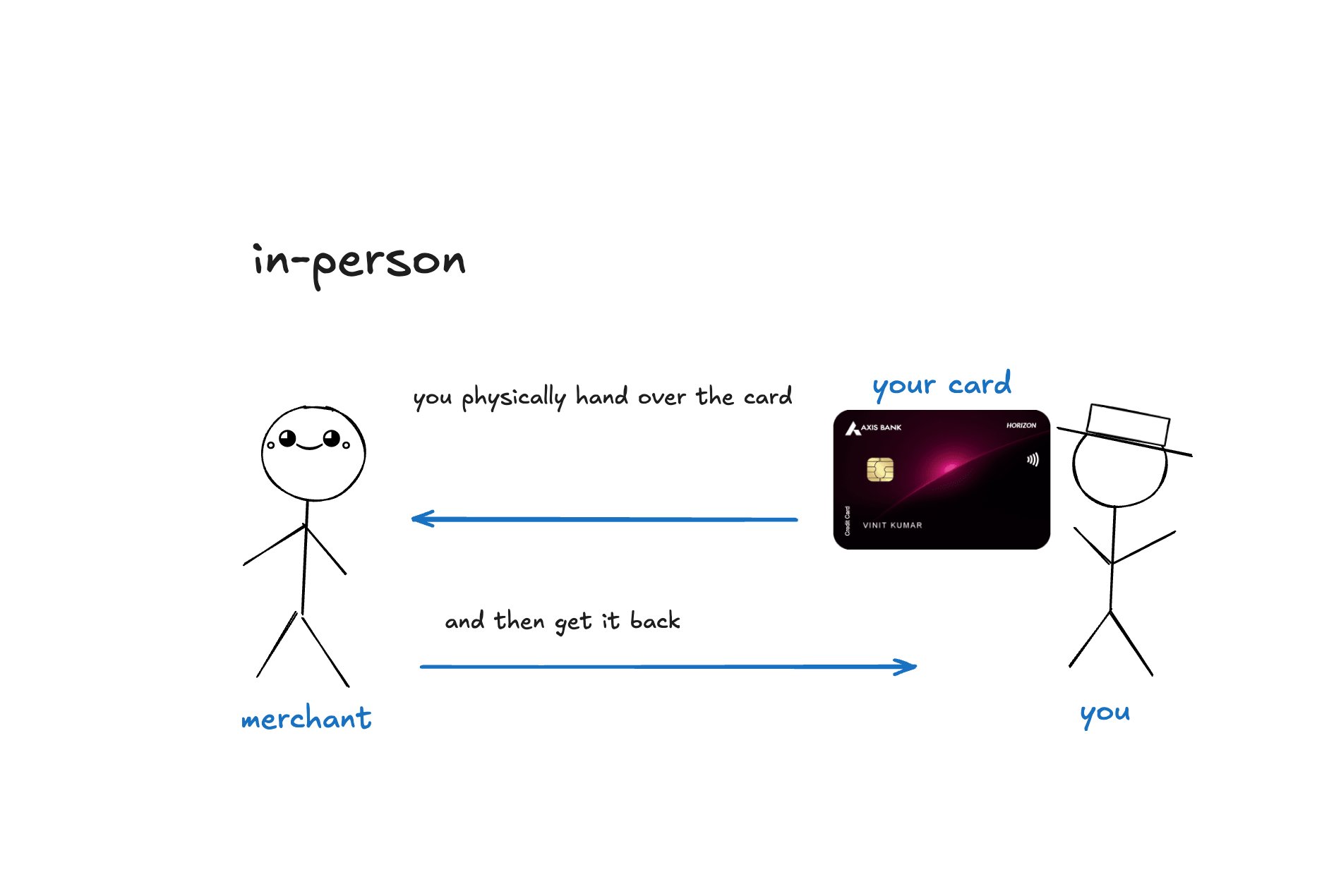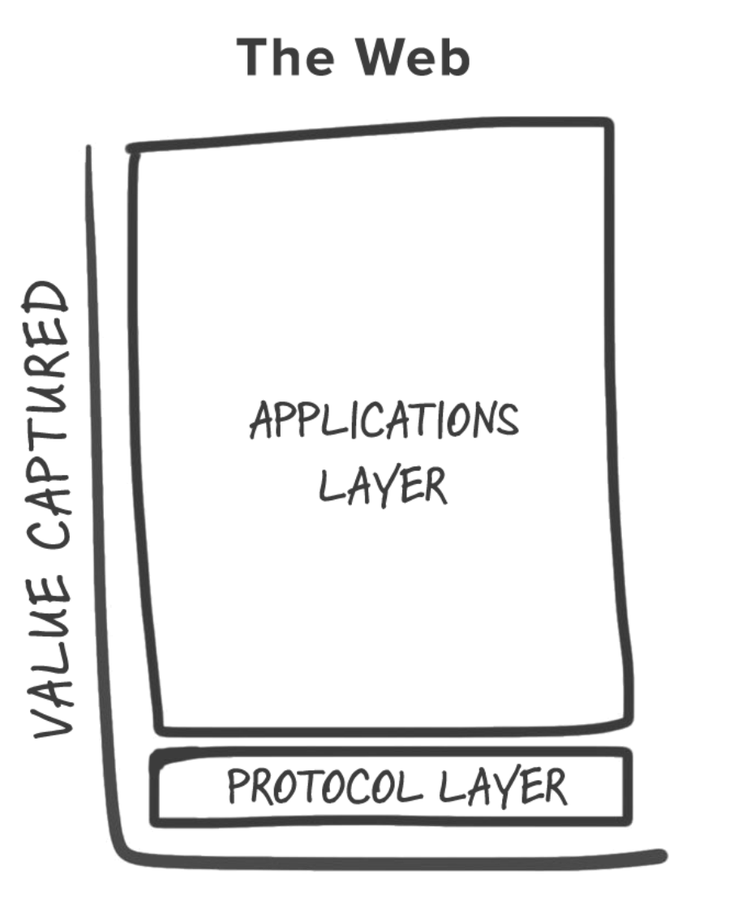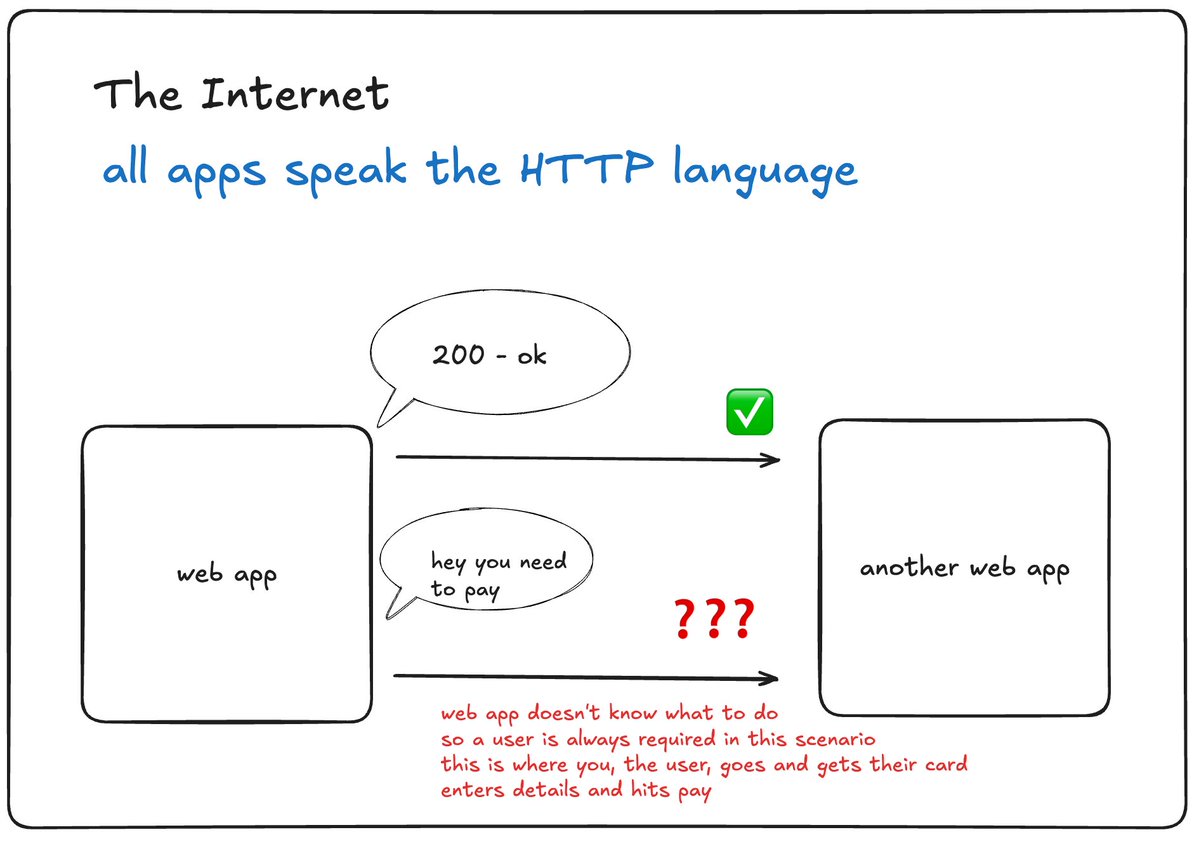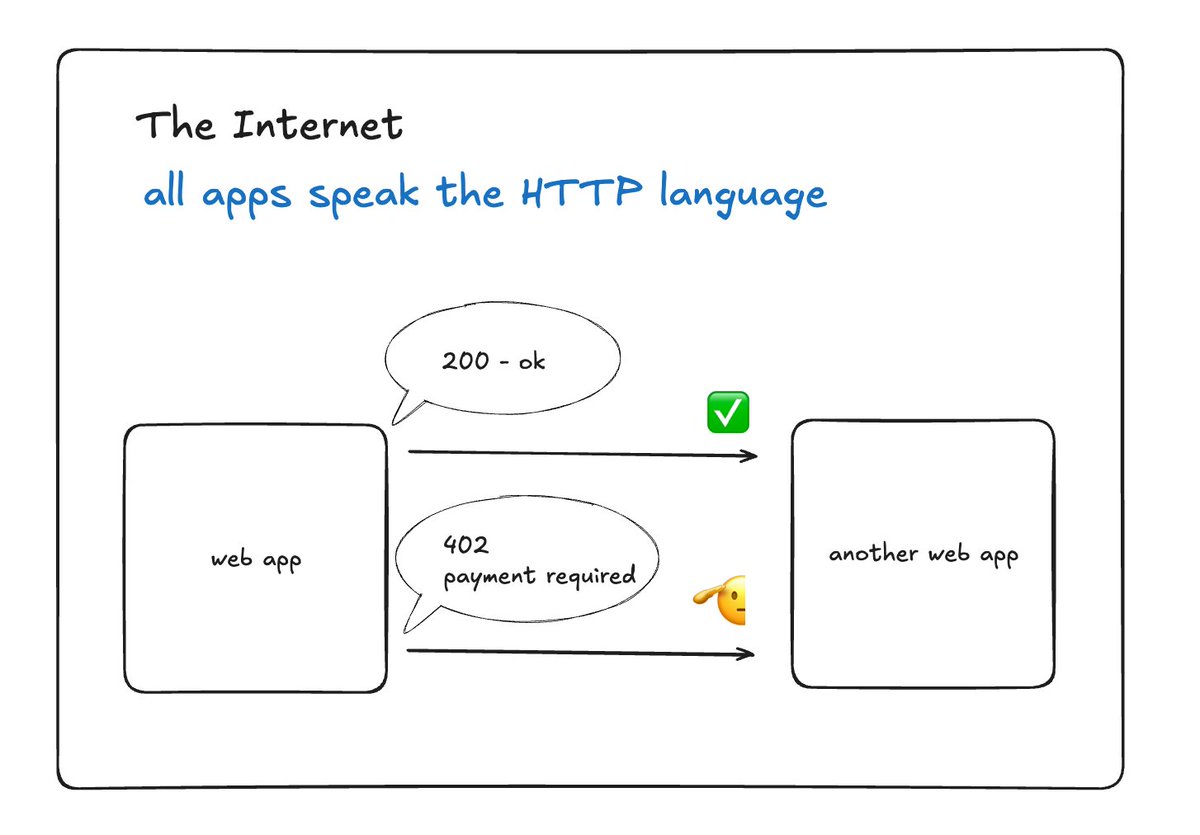x402: A Web-Native Protocol for Frictionless Crypto Payments
x402 is an open protocol that turns the HTTP 402 status code into a simple, composable way to accept crypto payments in web apps , no accounts, no OAuth, no invoices.
x402: A Web‑Native Protocol for Frictionless Crypto Payments
x402 is revolutionizing how machines pay on the internet. By activating the dormant HTTP 402 status code, this open protocol enables instant, permissionless crypto payments for API requests and web resources. Integrate with as little as one line of middleware and unlock new monetization models without the friction of traditional payment systems.
The Mental Model: Why x402 Changes Everything
When introducing x402 to people unfamiliar with crypto protocols, the conceptual breakthrough often comes from understanding a fundamental gap in how internet payments have traditionally worked.
The Internet's Missing Payment Layer

Unlike in-person transactions where payment is seamlessly integrated into the experience, the internet has always lacked a native payment method at the protocol level. While we now have cryptocurrencies designed as internet-native money, there hasn't been a standardized way to actually use this currency within the web's core communication layer.
Shifting from Application to Protocol

Historically, payment processing has been handled at the application layer, services like Stripe and PayPal operate as heavyweight solutions bolted onto existing web infrastructure. x402 fundamentally changes this by embedding payment capability directly into the thin protocol layer where HTTP operates.
Expanding HTTP's Vocabulary

Think of HTTP status codes as the internet's core vocabulary. Until now, web applications could only communicate using basic responses like "success" (200), "error" (500), or "not found" (404). The HTTP 402 status code, long dormant in the specification, finally gives servers a way to say "payment required" in a language that all web clients understand.

What This Enables

This protocol-level integration means:
- Machines can autonomously handle payments without human intervention
- Payments become a natural part of the request-response cycle
- Developers can implement payment requirements with minimal code
- The entire web stack gains a new dimension of expressiveness
By activating this dormant capability, x402 transforms how value flows across the internet, moving payments from complex application-level integrations to simple protocol-level communications.
Inspired by insights from angela (@probablyangg)
This fundamental shift enables three critical advantages:
- True Frictionless UX: No signups, emails, OAuth, or complex signatures required
- Instant Settlement: Money moves at blockchain speed - seconds, not days
- Protocol-Level Composability: Works across any blockchain via standardized facilitators
Core Protocol Properties
- Zero Protocol Fees: x402 itself charges no fees, merchants and customers choose their own facilitators, Blockchain Agnostic: Works across EVM chains, Solana, and more through facilitator adapters
- Developer Friendly: As little as one line of code to start accepting payments
- Open Standard: Anyone can implement or extend the specification
- Web Native: Uses standard HTTP status codes and headers
Easy Integration
Add payment requirements to your API endpoints with minimal code:
When a request arrives without payment, your server automatically responds:
The client pays the required amount and retries - that's the entire flow.
How x402 Works in Practice
- Seller Configures Pricing: Register endpoints and pricing with a facilitator
- Client Makes Request: Server responds with
402and payment challenge - Payment Execution: Client pays via facilitator using USDC or supported tokens
- Resource Delivery: Client retries with payment proof, server validates and serves content
Facilitators handle the blockchain complexity, so developers can focus on their application logic rather than payment infrastructure.
Powering Next-Generation Digital Commerce

AI Agents & Autonomous Systems
AI agents can now pay for API calls, data access, and compute resources in real-time without human intervention.
Microtransactions for Content
Enable true pay-per-article, pay-per-image, or pay-per-video models without subscription lock-in.
Infrastructure Monetization
Monetize APIs, cloud resources, edge devices, and specialized hardware with granular pricing.
Real-World Implementation
The middleware handles all payment verification automatically, letting you focus on your core application logic.
Ecosystem & Resources
Essential Starting Points
- x402 Official Website - Protocol overview and vision
- GitHub Repository - Official spec, issues, and reference materials
- Developer Documentation - Implementation guides and API reference
- x402Scan Explorer - Ecosystem analytics and network monitoring
Production-Ready Facilitators
- Coinbase Hosted Facilitator - Multi-network facilitator with Base support
- thirdweb x402 - Web3 infrastructure with simplified integration
- PayAI Facilitator - Specialized for AI agent payments
Developer Tools & SDKs
- x402-rs - High-performance Rust implementation
- TypeScript SDK - Official middleware and utilities
- Faremeter - Complete Typescript facilitator stack
For a comprehensive resource list, check out the Awesome x402 repository maintained by Merit-Systems.
Getting Started: Developer Checklist
- Choose Your Facilitator - Pick from Coinbase, thirdweb, or self-hosted options
- Integrate Middleware - Add payment requirements to your API routes
- Test Payment Flows - Use testnet environments for development
- Monitor & Analyze - Implement analytics to track payment performance
- Go Production - Deploy with mainnet facilitators
Quickstart Examples
- QuickNode Paywall Demo - Video content monetization
- Pinata Pay-to-Pin - IPFS storage payments
Security & Best Practices
The x402 protocol design emphasizes security through transparency and standardization.
Key considerations:
- Facilitator Reputation: Choose established, audited facilitator providers
- Payment Verification: Always validate payment proofs server-side
- Rate Limiting: Implement standard API protection measures
- Testing: Thoroughly test payment flows in sandbox environments
Refer to the official whitepaper for detailed security analysis and threat modeling.
Here's the updated ending section that properly credits both shafu and angela:
Community & Next Steps
The x402 ecosystem is growing rapidly with active development across multiple fronts. Community contributions have been instrumental in both technical development and educational content.
Special thanks to community builders like:
- shafu (@shafu0x) for sharing the comprehensive Awesome x402 resource repository and driving ecosystem awareness.
- angela (@probablyangg) for creating accessible mental models that helps grasp the protocol's fundamental value proposition
Get involved:
- Join the Conversation: Coinbase Developer Discord
- Explore Examples: Official Example Gallery
- Contribute Resources: Add to the Awesome x402 repository
Notable Developments
- Solana Support - Expanding beyond EVM chains
- AI Agent Integration - Autonomous machine-to-machine payments
- Growing SDK Ecosystem - Multiple language implementations
Get Building Today
x402 represents a fundamental shift in how we think about internet payments, moving from application-level complexity to protocol-level simplicity. Whether you're building AI agents, content platforms, or infrastructure services, x402 provides the foundation for frictionless, programmable payments.
This blog aggregates key resources and insights from the x402 ecosystem. Special thanks to the protocol authors, facilitator teams, and community contributors who are advancing internet-native payments through both code and content.
For the most current resource list and community contributions, visit the Awesome x402 repository maintained by Merit-Systems.